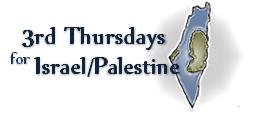3rd Thursday Action Alert: Tell the President that increased settlement activity will have consequences
While considerable attention was rightly being given last month to the Israeli government’s attacks on six prominent Palestinian human rights groups, Israel was also stepping up its plans to expand settlements in the West Bank and East Jerusalem.
On October 24 the Israeli Housing Ministry published tenders for new construction of 1,418 homes in the West Bank and East Jerusalem and, despite objections from the State Department, on October 27 the Israeli Civil Administration also advanced plans for 3,130 settlement units in 25 settlements in the West Bank. Axios reported “Senior Israeli officials admit that the U.S. position on settlements was tougher than they had expected, but note that the criticism is coming mainly from the State Department, with the White House not weighing in publicly for now.”
Also last month, pressure increased on Palestinians living in the neighborhood of Sheikh Jarrah, where Israeli settlers have sought to evict Palestinian residents. The Israeli Supreme Court issued a proposed agreement to settle the dispute by November 2, but the Palestinian residents rejected the Court’s proposal. In another development, Israeli authorities started holding hearings to advance the construction of the E-1 settlement, a long-pending project, which, if built, would disconnect East Jerusalem from the West Bank and create two dis-contiguous areas, splitting the northern section from the southern section of West Bank. Settler violence during the olive harvest season (now underway) goes on mostly unchecked by Israeli forces, evidence of state collusion that B’Tselem has described as “a major informal tool at the hands of the state to take over more and more West Bank land.” Documentation of this pattern is a further example that underscores the need for and importance of reliance on local human rights organizations for objective and accurate documentation and analysis.
Altogether these illegal, unilateral actions intensify pressure on Palestinians, their families, their homes and their lands under occupation, in contravention to the Fourth Geneva Convention relative to the Protection of Civilian Persons in Time of War (1949), by “ … altering the demographic composition, character and status of the Palestinian Territory occupied since 1967, including East Jerusalem …” (United Nations Security Council resolution 2334 [2016]).
They also undermine further prospects for a negotiated final status agreement that respects the right to self-determination of the Palestinian people.
…

